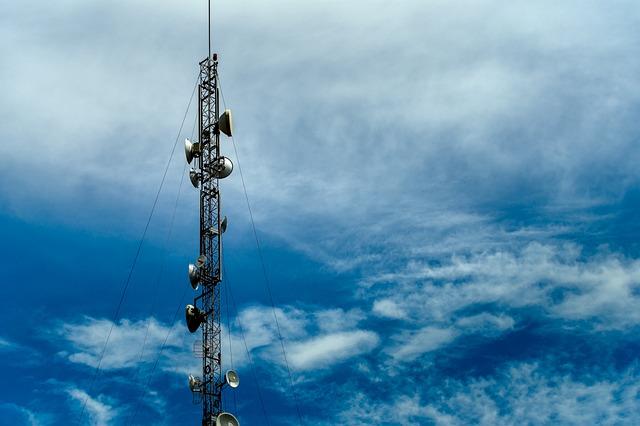In a significant move aimed at enhancing competition and accessibility within the telecommunications sector, Togo’s regulatory authority has announced a reduction in wholesale telecom rates. This decision, revealed by Togo First, marks a pivotal shift in the national telecommunications landscape, with potential implications for both service providers and consumers alike. By lowering the costs that operators pay to access network infrastructure, the Togolese telecom watchdog seeks to foster a more dynamic market surroundings, ultimately benefiting subscribers through improved services and lower retail prices. As Togo continues to navigate the evolving digital age, this development underscores the government’s commitment to bolstering connectivity and supporting the growth of the telecommunications industry.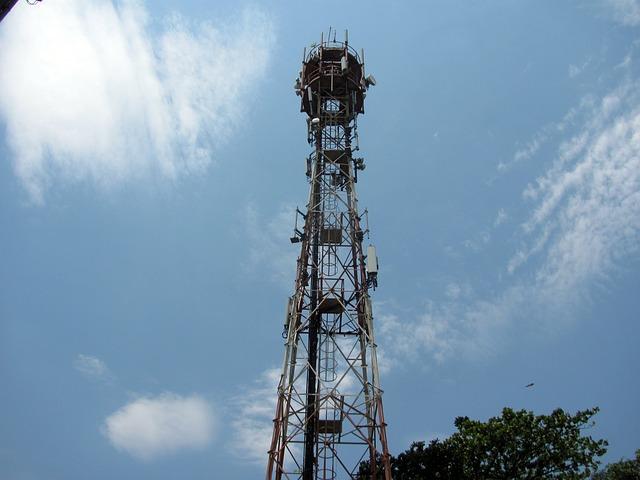
Impact of Reduced Wholesale Rates on Togo’s Telecom Market
The recent decision to lower wholesale telecom rates in Togo is poised to create significant ripple effects across the telecom landscape. By reducing the financial barriers for telecom operators,the regulatory body aims to foster a more competitive market environment. This strategic move is expected to lead to a series of benefits, including:
- Increased Competition: Lower wholesale rates could encourage new entrants into the market, enhancing competition among existing players.
- Affordable Services: As operators face reduced costs, the expectation is that they will pass these savings onto consumers, resulting in lower retail prices.
- Investment Stimulus: A more inviting market can attract both local and foreign investments, further boosting infrastructure development.
Moreover, the adjustment in wholesale rates may have significant implications for end-user experiences. By lowering operational expenses, telecom providers might also improve their service offerings, leading to enhanced network reliability and customer satisfaction. Key potential impacts include:
- Enhanced Technology Adoption: With reduced costs, operators could invest in upgrading technologies, leading to better service quality.
- Expanded Coverage: increased revenues from improved competition might allow providers to extend their reach into under-served areas.
- innovation in Services: Cost reductions can enable companies to explore innovative products and services tailored to customer needs.
| Impact Area | Potential Outcomes |
|---|---|
| Market Dynamics | Higher competition leads to better pricing. |
| Consumer Benefits | More affordable services and improved experiences. |
| Infrastructure | Increased investment and expanded coverage. |
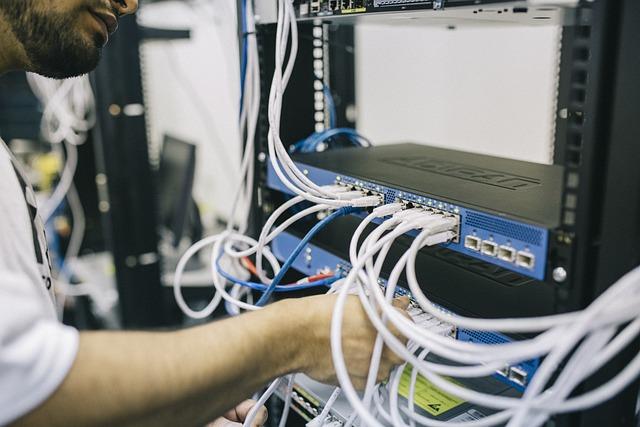
Analysis of Consumer Benefits from Lowered Telecom Costs
The recent decision by the Togolese telecom watchdog to lower wholesale telecom rates marks a significant shift in the market dynamics of Togo’s telecommunications sector. This reduction in rates not only enhances the competitive landscape among telecom providers but also directly benefits consumers through a variety of channels. Consumers can now anticipate lower prices on mobile data and voice calls, leading to increased accessibility to essential services.Furthermore, this is expected to stimulate increased internet penetration in rural areas, where connectivity has been a persistent challenge, thereby fostering inclusivity in digital access.
As decreased wholesale rates cascade down the supply chain, several palpable benefits for consumers emerge:
- Enhanced Affordability: Consumers can expect lower monthly bills and promotions, making telecom services more accessible to low-income households.
- Improved Service Quality: Increased competition might push companies to enhance their offerings, leading to better service quality.
- Expanded service Options: Lower costs may also encourage new players to enter the market, providing consumers with diverse service options.
To illustrate the potential impact of these lowered rates, consider the following table showcasing hypothetical price reductions for popular telecom services:
| Service Type | Previous Price (XOF) | New Price (XOF) | Percentage Decrease |
|---|---|---|---|
| Monthly Data Plan (2GB) | 5,000 | 4,000 | 20% |
| Voice Call Minute Package | 1,500 | 1,200 | 20% |
| SMS Bundle (100 SMS) | 1,000 | 800 | 20% |
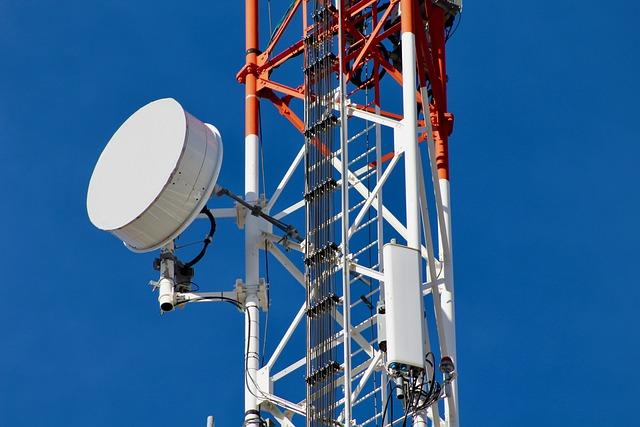
Challenges Facing Telecom Providers in Adapting to New Rates
Telecom providers in Togo are currently navigating a maze of challenges as they adjust their pricing structures in response to the recent decision by the regulatory authority to lower wholesale telecom rates. One of the primary obstacles is the need to balance cost efficiency with the quality of services offered to consumers. As competition heightens among providers, firms must invest in upgrading their infrastructure to cope with the potential increase in user demand, all while facing pressures on their profit margins. This delicate dance requires careful financial forecasting and strategic planning, as providers must ensure that their pricing remains competitive without compromising service reliability.
Moreover, companies are grappling with the regulatory compliance aspects associated with the new pricing regime. Adapting to these changes necessitates a complete reassessment of current business models and operational processes. Providers must consider various factors, including:
- customer Retention: Ensuring that existing customers remain loyal despite lower market prices.
- Market Positioning: Redefining their market strategies to stand out amidst the reduced wholesale rates.
- Technological Upgrades: The need for investment in modern technology to enhance service delivery.
In facing the impending transformations, telecom providers need to strategically align their resources and restructure their offerings to adapt not only to the regulatory changes but also to evolving consumer expectations.

Recommendations for Ensuring Sustainable Competition in the Sector
To foster a climate of sustainable competition within the Togolese telecom sector, several key strategies can be adopted.Firstly, enhancing regulatory frameworks will ensure that all players adhere to equal standards, promoting fairness and transparency. This can be achieved through periodic reviews of regulations that take into account technological advancements and market dynamics. Additionally, investing in consumer education can empower users to make informed choices, leading to greater demand for quality services and innovation among providers.
Furthermore, collaboration among telecom operators can be encouraged to share infrastructure resources, thereby reducing operational costs and enhancing service delivery. Public-Private Partnerships (PPPs) could serve as a vehicle for expanding network coverage,particularly in underserved areas. This collaborative approach can create a more resilient market structure, as various stakeholders work together toward common goals, ultimately driving growth and sustainability in the sector.

Future Outlook for togo’s Telecom Industry Post-Rate Adjustment
The recent reduction in wholesale telecom rates by Togo’s regulatory body opens the door to several transformative opportunities within the sector. By lowering costs,the government aims to enhance operational efficiency among telecom providers,enabling them to offer more competitive retail prices. This shift is expected to not only stimulate consumer demand but also encourage wider internet access across urban and rural regions alike, fostering inclusivity and bridging the digital divide. Key potential impacts include:
- Increased Accessibility: Enhanced reach of telecom services in underserved areas.
- Innovation Boost: Greater motivation for telecom companies to develop and offer innovative services.
- Job Creation: Potential for job growth in digital and telecom infrastructure sectors.
Despite the positive outlook, challenges remain that stakeholders must address to realize the full benefits of this rate adjustment. Companies may face hurdles in adapting their business models to the new pricing, necessitating strategic partnerships and network investment. Moreover, the implementation of robust customer service frameworks will be critical to ensure customer satisfaction as the industry undergoes rapid transformation. The key factors to monitor include:
| Factor | Implication |
|---|---|
| Market Competition | Potential for price wars, benefiting consumers |
| Technological Infrastructure | Need for upgrades to support increased demand |
| Regulatory Oversight | Ensuring fair practices and preventing monopolies |
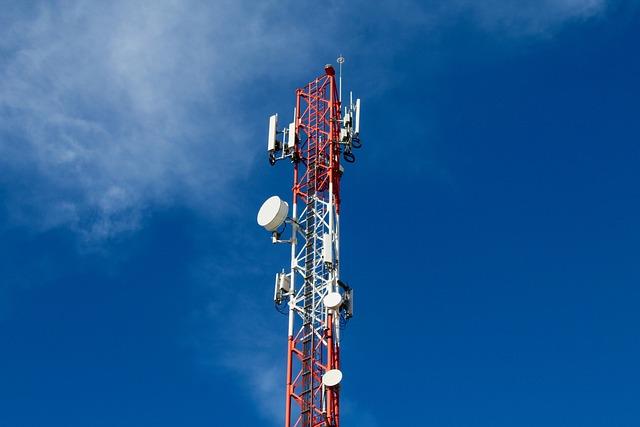
Role of Regulatory Bodies in Shaping a Fair Telecom Landscape
The recent decision by Togo’s telecom regulatory authority to lower wholesale telecom rates highlights the vital role such bodies play in ensuring a balanced competitive environment. by implementing lower rates, regulatory agencies are fostering an ecosystem where smaller and emerging telecom operators can thrive alongside established players. This initiative not only stimulates market growth but also encourages innovation by allowing a diverse range of services that can better meet the needs of consumers. Furthermore, reduced wholesale rates often translate to increased affordability for end-users, enhancing access to essential interaction services across the nation.
Regulatory bodies are tasked with the responsibility of monitoring industry practices to safeguard consumer interests while promoting fair competition. They create frameworks that govern pricing models, service quality standards, and market entry requirements, thereby ensuring that no single entity can dominate the market. Through regular assessments and adjustments of policies, these agencies are able to address emerging challenges in the rapidly evolving telecom sector. Key functions of these regulatory bodies include:
- establishing Price Caps: keeping costs in check to prevent monopolistic behavior.
- Conducting Market Analysis: Evaluating market dynamics to make informed decisions.
- Ensuring Transparency: Mandating disclosure of pricing and service quality to empower consumers.
- Encouraging Infrastructure Investment: Supporting initiatives that expand network coverage and resilience.
| Function | description |
|---|---|
| Price Regulation | Control wholesale and retail prices to sustain healthy competition. |
| Consumer Protection | Implement policies that ensure fair treatment of consumers in the telecom sector. |
| Market Entry Facilitation | Streamline processes for new entrants to promote diversity and innovation. |

Insights and Conclusions
the decision by Togo’s telecommunications watchdog to lower wholesale telecom rates marks a significant step towards enhancing connectivity and reducing costs for consumers across the nation. By decreasing these rates, the regulatory body aims to foster a more competitive landscape that could lead to improved services and greater access for all citizens. This move not only reflects the government’s commitment to digital transformation and economic growth but also positions Togo as an evolving player in the West African telecom sector. Stakeholders will be keenly observing the impacts of this regulatory shift as we move forward, particularly in how it influences retail prices, service delivery, and ultimately, the digital lives of Togolese citizens. As the telecom industry adapts to these new rates, the ongoing dialog between regulators, providers, and consumers will be crucial in shaping a more connected future for the country.

